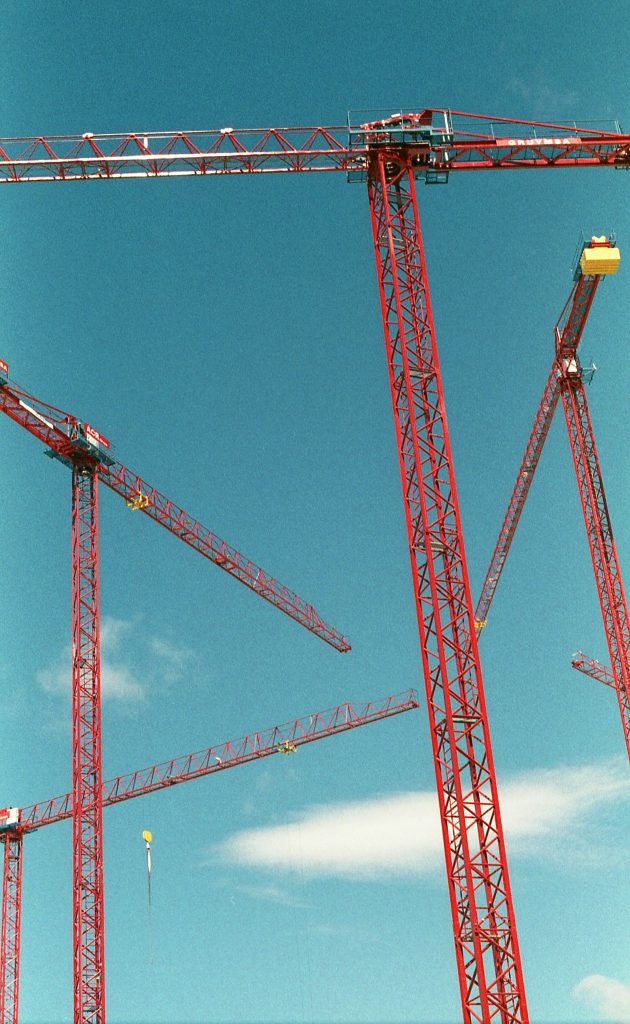
May 15, 2024 | Toronto Housing Market
For over a decade, for better or for worse, Toronto has consistently claimed the top spot for the most cranes dotting its skyline among North American cities. While these cranes construct commercial buildings and increasingly more purpose-built rental units, they primarily signify the construction of residential condo towers. Just last year, in the third quarter of 2023, Toronto boasted 238 cranes in operation, leaving the second-place city, Seattle, far behind with a mere 50 cranes. This trend isn’t new; it has persisted for many years. It’s partly because Toronto had numerous parking lots to repurpose, and partly due to zoning bylaws encouraging tall building construction downtown. But, most crucially, it’s because Toronto needs housing. Despite the impressive number of cranes, it’s still insufficient to accommodate the ongoing and anticipated population growth in the years ahead.
So, as remarkable as the figure may seem, it falls short of Toronto’s actual needs. The increasing number of cranes over the years has been beneficial for new housing in Toronto. However, now, rather than increasing, we’re witnessing a decrease.
In 2024, something interesting happened. The numerous cranes that long characterized Toronto’s evolving skyline dwindled in number. After peaking in January 2023 at 238, the count has now dropped to 198.
It might be tempting to view these fluctuations as normal; some years are simply stronger than others. However, it’s essential to remember that Toronto faces a housing shortage. It remains a growing city with an ongoing need for housing. Property numbers aren’t increasing as they should. So, why is this happening?
Well, there are a few reasons. Let’s begin with how condos are sold. When pre-construction condos are sold, the cost of a unit is based on the developer’s projected price upon completion, not the current market rate. For instance, if you purchased a condo in 2019 slated for completion in 2024, the developer would have optimistically projected its value in 2024, unaware of events like Covid and subsequent interest rate hikes that would stabilize prices. Consequently, the price projections were much higher than the actual value in 2024.
Moreover, rising interest rates made it increasingly costly for pre-construction buyers to afford their units upon completion, leading to higher-than-anticipated monthly mortgage payments. In essence, pre-construction became prohibitively expensive, causing buyers to retreat. In contrast to Toronto’s thriving resale condo market, the pre-construction sector suffered. Many developers now offer incentives such as free parking, reduced development fees, and mortgage assistance programs. To provide some perspective, pre-construction condo unit sales in the Greater Toronto and Hamilton areas approached 10,000 units in Q1 of 2022. In Q1 of 2024, they amounted to only 1,461, far below the ten-year average of 4,798 units, according to Urbanation.
With dwindling demand, developers are pulling back on condo projects, leading to 60 canceled projects in Toronto, which would have added 21,505 new units, now on indefinite hold. One can hardly fault developers for these cancellations; the buyer pool has significantly shrunk, while costs have escalated. Development fees have risen, and impending increases in capital gains tax on rental properties deter investors, who constitute more than half of initial pre-construction buyers. All these factors make pre-construction less financially viable, resulting in fewer transactions both now and in the future.
So, what does this mean for you? If you bought a pre-construction condo slated for completion in the first half of 2024, you might experience some short-term setbacks. Chances are, you paid more than the current market value of your condo. Additionally, you’ll face higher mortgage rates than initially anticipated. While rental rates have increased since your purchase several years ago, renting out your condo has become more challenging this year due to higher interest rates, limiting renters’ affordability.
If you’re considering buying a condo, you might hesitate to do so now. Pre-construction prices are currently inflated, but resale condos remain a viable option.
Whether you own a resale or pre-construction condo, the long-term return may surpass your expectations. While the future of real estate is uncertain, the slowdown in construction, driven by higher rates and decreased demand for pre-construction units today, will inevitably lead to fewer completed condo units in the future. If we’re only building half as much housing as we need currently, this issue will exacerbate in 5-10 years when the impact of reduced residential condo construction becomes more pronounced. If we’re already facing a housing shortage now, it’ll only worsen in the long term with canceled condo projects and fewer cranes gracing the skyline.

